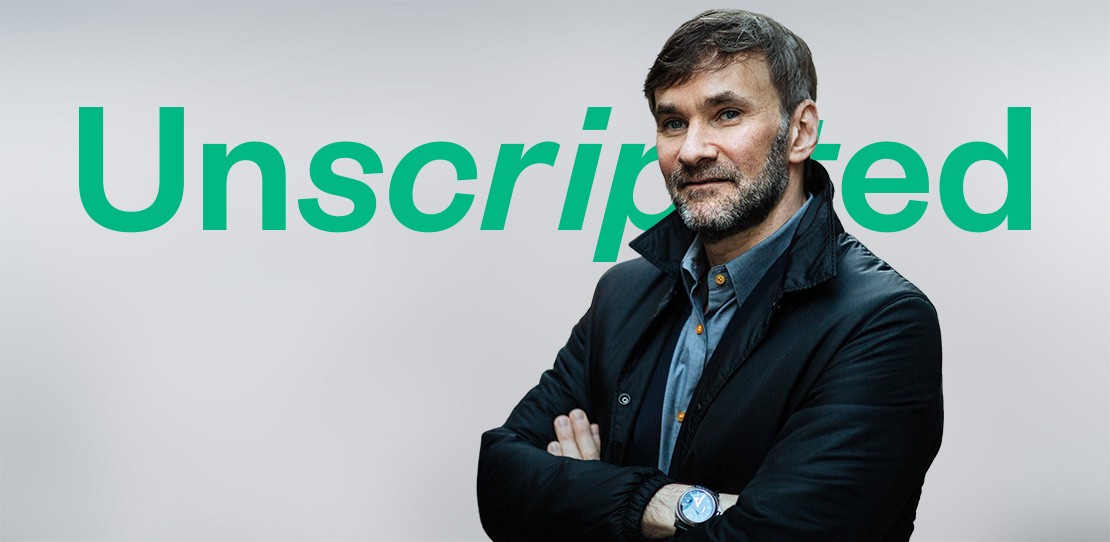
Engineering Hope in a Crisis
The COVID-19 pandemic placed historic demand on ventilator production lines. Learn how Ventec and Velentium met a seemingly impossible goal using NI test systems.

New York Times bestselling author and executive coach Keith Ferrazzi introduced a new transformational operating system he calls “co-elevation” in his latest book, “Leading Without Authority.” He believes the first set of behaviors to focus on within teams is the behavioral commitment to each other. People committed to integrity, speaking the truth, and caring about each other creates exponential and sustainable change. Dive in to apply these behaviors to thrive, survive, grow, and excel at work or home.
Co-elevation defines the kind of leadership that’s needed today. The kind of leadership that lifts each other up, committed to a mission, but also committed to each other.
–Keith Ferrazzi, Chairman, Ferrazzi Greenlight
I'm Keith Ferrazzi. I'm the chairman of Ferrazzi Greenlight. I've had the honor of publishing a number of bestselling books on the subject of leadership and the future of work. I was formerly the chief marketing officer of both Deloitte and Starwood Hotels.
My top hobbies are probably working out and cooking. And they work well together because I have to work out for the cooking that I do.
My favorite cuisine is when somebody tells me there's nothing in the refrigerator. And I say, step back, we're going to have dinner.
When you grow up a poor kid from Pittsburgh, and the doors aren't open to you because of family business or connections, you have to create your own nepotism. What I mean by that is, it was through the relationships that I created that I opened doors. And that was the formation of my first book, "Never Eat Alone."
Co-elevation is a word that I created to define the kind of leadership that's needed today. The kind of leadership that lifts each other up, committed to a mission, but also committed to each other.
One of my greatest teachers have been my two boys. My youngest son was 12 when we got him out of foster care. And he's now in his 20s. I had to earn the right to be a father. And it taught me more about co-elevation than I even learned in the workplace and in our research.
The first set of behaviors that need to be focused on are, in fact, that behavioral commitment of a team. Once that happens, then people want to change their behaviors for each other. And that's such a crucial first step in behavior change—is getting the tribe to be a tribe.
The principle of co-elevation assumes that you believe that more individuals' input will give us bolder outcomes, that I believe in inclusion. We talk a lot about diversity and inclusion. And that often just relates to filling the seats with a diverse population.
But if we fill the seats with a diverse population, but we don't include the voices, if we don't extract the voices—I call it teaming out and inviting people in. If we don't do that, then we're not going to get the benefits from diversity.
The group has to fundamentally agree that integrity has shifted. It used to be OK to talk behind each other's backs. It is not anymore. We have a commitment to integrity, that we will speak the truth in the room.
And a part of that is because we have become a tribe. We do care about each other. We do care about the connection among the group of individuals. And that's what I leave an organization. And if I can leave an organization with that commitment, then I know I've got sustainability.
I believe that you should have a bold set of aggressive inputs. But then equally, we still have individuals who can make decisions that can be equally as bold. Just because you have a co-elevating team doesn't mean everybody agrees. In fact, it should be that you see where people don't agree.
But then once a decision is made, everybody has to be on the same page for execution. And that's, again, that social contract, so nobody undermining each other because your way didn't get to be had. Your way is irrelevant. The only thing that matters is that we as an organization thrive, survive, grow, and excel.
We are incredibly resilient as a people. And we long to go back to our core DNA, tribal humans who care and need each other to succeed. And I feel that—my hope is that during the time, the difficulty that we've had in the last months, that we will move forward stronger, better, more connected than ever before.
Keith Ferrazzi is an American entrepreneur and recognized global thought leader in the relational and collaborative sciences. He is the number one New York Times bestselling author of “Who’s Got Your Back,” “Never Eat Alone,” and “Leading Without Authority.” As Chairman of Ferrazzi Greenlight and its Research Institute, he works to identify behaviors that block global organizations from reaching their goals and to transform them by coaching new behaviors that increase growth and shareholder value. Keith was formerly the chief marketing officer of Deloitte and Starwood Hotels.
For more information on co-elevation, visit coelevation.com.